Brother
Professional
- Messages
- 2,590
- Reaction score
- 511
- Points
- 83
Introduction
Mankind, almost from the very moment of its inception, tried in every possible way to hack its body. And one of the key objects of such biohacking, of course, was sleep. It is fair, because even the cavemen had little 24 hours a day (even if they did not even know how convenient it was to measure time then), and even more so for us.

Sleep takes a lot of time. A third of our lives. And it would be very nice to use this time much more efficiently, say, fill up an extra pair of three mammoths, or finish a couple of postponed books, close all deadlines for hanging projects, or spend this time with loved ones. But how to do this, because without enough sleep, we are as unproductive as possible. Just dull, incapable cocoa. There is an exit. And it is called polyphasic sleep.
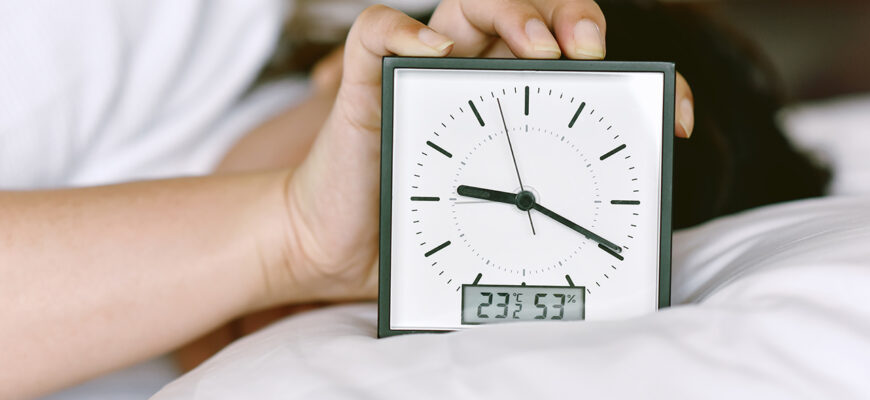
What?
For starters, what types of sleep are there? Most of us sleep 6-8 hours a day and mostly at night. This is called monophasic sleep. Someone, for example children, likes to sleep twice a day - a little at lunchtime and a little less at night. This is called biphasic sleep. And as you might have guessed, polyphasic sleep is a sleep pattern in which sleep time, unlike single-phase or biphasic sleep, is split into many short periods throughout the day. Or so, polyphasic sleep is not a “single block” sleep, 8 hours a day, but little by little, throughout the day, at regular intervals. Moreover, it is very important what these time intervals will be. Depending on their number and duration, polyphasic sleep is divided into subspecies.
Types of polyphasic sleep:
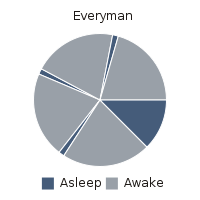
Everyman
For example, a basic sleep from 1 to 4 in the morning and a 20-minute nap at 9, 14 and 21 hours. Can be configured at a convenient time for you.
Everyman sleep is considered one of the simplest, most resilient and flexible modes of polyphasic sleep.
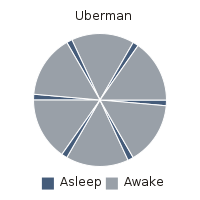
Uberman
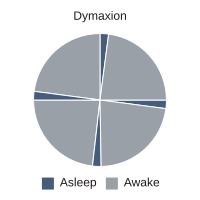
Dymaxion
Dymaxion is the most controversial and difficult sleep regimen. Since you only have to sleep 2 hours a day, there are few people who can handle this. This sleep mode was invented by the famous American architect, designer, engineer Richard Buckminster Fuller. He claimed to have practiced the Dymaxion sleep cycle for two years. It seemed like he was high and he felt super productive, but there is no official confirmation ..

For what?
Obviously, the main benefit of polyphasic sleep is time savings. At the same time, it is important to remain productive in order to be able to use this time. So how can you stay productive and recuperate in such short half-hour intervals? Any sleep is divided into phases - alternating REM and Slow sleep. In the process of the latter, the body restores the energy that it spent during wakefulness, and in the process of REM sleep, the brain itself rests. The difference also lies in the fact that it is much easier to wake up a person with slow sleep, since the brain continues to work, and with REM sleep, it is almost impossible. Polyphasic sleep is characterized by the fact that in its system your body gets used to go to REM sleep in a relatively short period of time, which reduces the time you spend in bed.
Pros:
Minuses:
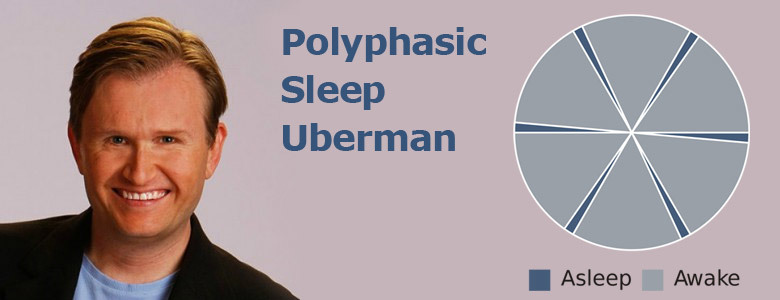
How to use it correctly?
As you may have already figured out, polyphasic sleep is not for the weak. You need to have not feeble willpower and endurance in order to rebuild yourself to sleep in short, and most importantly, strictly limited and specific time intervals. Addiction to polyphasic sleep will come within 7-10 days after starting to comply with the schedule. It will be a little difficult at first, but you can handle it. Subsequently, the body itself will inform you that it is time for you to sleep. Falling asleep and waking up from REM sleep will be easy and effortless. The fact is that the refusal of a person from slow sleep does not carry any negative consequences for the body. This has been proven by numerous studies in the United States. Therefore, polyphasic sleep can be practiced for quite a long time, up to 5 months. But polyphasic sleep has a number of negative aspects, and they are not about your health, but about your regimen. For example, during the period of "getting used to" to polyphasic sleep, within 7-10 days you do not need to make any important appointments and tasks, since the body will be in the process of adaptation, and it will be difficult for you to accumulate your strength for something very important ... Also, do not be alarmed if you change your food habits and consume more and more of it. This is due to an unusual schedule for the body and the fact that you are now awake more often. The most difficult thing is to create your schedule so that polyphasic sleep fits there perfectly. For those who work from home, polyphasic sleep is simply ideal, since the habituation process will proceed easily and subsequently you will not have any problems with it. For those who work in the office for the period of adaptation to polyphasic sleep, it is better to take a vacation, and then you will get used to falling asleep in any environment. Polyphasic sleep obliges you to be punctual and responsible, if you really decided to change the regime, approach this process intelligently and follow all the recommendations.
Some tips:

Outcome
Kind of like polyphasic sleep is a topic. But again, you need to test on yourself, since everyone has individual needs for sleep and different characteristics of the body. The thing is not validated by authoritative research, so if you are not sure if you need it 100%, or if you have any health problems, by no means try it! Depletion of the body will be, and you need to be strong to withstand lack of sleep. That's all for me. I hope you found it interesting and don't forget to share your polyphasic sleep experience in the comments!
Mankind, almost from the very moment of its inception, tried in every possible way to hack its body. And one of the key objects of such biohacking, of course, was sleep. It is fair, because even the cavemen had little 24 hours a day (even if they did not even know how convenient it was to measure time then), and even more so for us.

Sleep takes a lot of time. A third of our lives. And it would be very nice to use this time much more efficiently, say, fill up an extra pair of three mammoths, or finish a couple of postponed books, close all deadlines for hanging projects, or spend this time with loved ones. But how to do this, because without enough sleep, we are as unproductive as possible. Just dull, incapable cocoa. There is an exit. And it is called polyphasic sleep.

What?
For starters, what types of sleep are there? Most of us sleep 6-8 hours a day and mostly at night. This is called monophasic sleep. Someone, for example children, likes to sleep twice a day - a little at lunchtime and a little less at night. This is called biphasic sleep. And as you might have guessed, polyphasic sleep is a sleep pattern in which sleep time, unlike single-phase or biphasic sleep, is split into many short periods throughout the day. Or so, polyphasic sleep is not a “single block” sleep, 8 hours a day, but little by little, throughout the day, at regular intervals. Moreover, it is very important what these time intervals will be. Depending on their number and duration, polyphasic sleep is divided into subspecies.
Types of polyphasic sleep:

Everyman
- 1.5 - 4.5 hours at night
- 3-5 times for 20 minutes during the day.
- In total - from 3 to 6 hours a day
For example, a basic sleep from 1 to 4 in the morning and a 20-minute nap at 9, 14 and 21 hours. Can be configured at a convenient time for you.
Everyman sleep is considered one of the simplest, most resilient and flexible modes of polyphasic sleep.

Uberman
- 20-30 minutes of sleep every 4 hours. For example, a 20 minute nap at 2, 6, 10, 14, 18, and 22 hours.
- In total - 3 hours of sleep per day.

Dymaxion
- 4 times 30 min. during the day at regular intervals, ie every 6 hours. You need to sleep strictly every 6 hours, otherwise the whole plan will go along the female line.
- In the bag, you get 2 hours of sleep.
Dymaxion is the most controversial and difficult sleep regimen. Since you only have to sleep 2 hours a day, there are few people who can handle this. This sleep mode was invented by the famous American architect, designer, engineer Richard Buckminster Fuller. He claimed to have practiced the Dymaxion sleep cycle for two years. It seemed like he was high and he felt super productive, but there is no official confirmation ..

For what?
Obviously, the main benefit of polyphasic sleep is time savings. At the same time, it is important to remain productive in order to be able to use this time. So how can you stay productive and recuperate in such short half-hour intervals? Any sleep is divided into phases - alternating REM and Slow sleep. In the process of the latter, the body restores the energy that it spent during wakefulness, and in the process of REM sleep, the brain itself rests. The difference also lies in the fact that it is much easier to wake up a person with slow sleep, since the brain continues to work, and with REM sleep, it is almost impossible. Polyphasic sleep is characterized by the fact that in its system your body gets used to go to REM sleep in a relatively short period of time, which reduces the time you spend in bed.
Pros:
- More time (for work, fun, rest, family, etc.)
- Productivity.
- Sleep without an alarm.
- It is easier to fall into a lucid dream, since the phase of this method is fast.
Minuses:
- Blurred days
- No more alcohol parties.
- Not everyone is fit for health. At first, a large load on the nervous and cardiovascular system
- Long and hard to get used to
- No studies prove 100% effective
- Not for all

How to use it correctly?
As you may have already figured out, polyphasic sleep is not for the weak. You need to have not feeble willpower and endurance in order to rebuild yourself to sleep in short, and most importantly, strictly limited and specific time intervals. Addiction to polyphasic sleep will come within 7-10 days after starting to comply with the schedule. It will be a little difficult at first, but you can handle it. Subsequently, the body itself will inform you that it is time for you to sleep. Falling asleep and waking up from REM sleep will be easy and effortless. The fact is that the refusal of a person from slow sleep does not carry any negative consequences for the body. This has been proven by numerous studies in the United States. Therefore, polyphasic sleep can be practiced for quite a long time, up to 5 months. But polyphasic sleep has a number of negative aspects, and they are not about your health, but about your regimen. For example, during the period of "getting used to" to polyphasic sleep, within 7-10 days you do not need to make any important appointments and tasks, since the body will be in the process of adaptation, and it will be difficult for you to accumulate your strength for something very important ... Also, do not be alarmed if you change your food habits and consume more and more of it. This is due to an unusual schedule for the body and the fact that you are now awake more often. The most difficult thing is to create your schedule so that polyphasic sleep fits there perfectly. For those who work from home, polyphasic sleep is simply ideal, since the habituation process will proceed easily and subsequently you will not have any problems with it. For those who work in the office for the period of adaptation to polyphasic sleep, it is better to take a vacation, and then you will get used to falling asleep in any environment. Polyphasic sleep obliges you to be punctual and responsible, if you really decided to change the regime, approach this process intelligently and follow all the recommendations.
Some tips:
- Decorate your bedroom so that you are as comfortable as possible in it.
- Eat healthy foods and avoid junk food.
- Occupy yourself with something during your waking hours, then time will fly by.
- Free up two to three weeks for the transition, otherwise there is a risk of falling asleep right at work or school.
- Do not give up! It will get much easier after a couple of weeks. You just have to wait. Do not skip sleep breaks or change the time intervals between them, so as not to start the adaptation period over again.
- Turn on loud music to wake up, and make sure in advance that no extraneous sounds prevent you from falling asleep.

Outcome
Kind of like polyphasic sleep is a topic. But again, you need to test on yourself, since everyone has individual needs for sleep and different characteristics of the body. The thing is not validated by authoritative research, so if you are not sure if you need it 100%, or if you have any health problems, by no means try it! Depletion of the body will be, and you need to be strong to withstand lack of sleep. That's all for me. I hope you found it interesting and don't forget to share your polyphasic sleep experience in the comments!
